- Memories of Nicholas Schaffner and The Beatles Forever - January 4, 2026
- Old Draft: Beatles Folk Memory 1970-1995 - December 8, 2025
- Lights are back on. - December 8, 2025
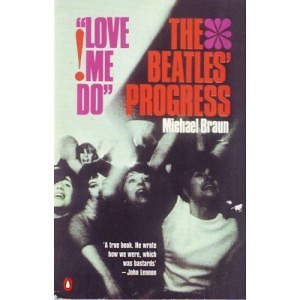
Trustworthy? Anybody read it? Still in my to-read pile
Those of you not subscribed to comment updates (and why not?) might have missed the discussion smoldering over on the “Paul Better Than John” post. Thanks to all who are chiming in, it’s what makes this site great. The rest of you, please comment! We’re still not as lively as we were on the crappy old Blogger site, for reasons I’m not quite sure of, but am determined to address.
Loyal commenter @Karen writes:
“Our recent conversation about Lewisohn and his conclusions about the Blackpool incident got me thinking about a checklist (called C.A.R.S) used in academic circles to examine the veracity of data sources when conducting research.
I thought it might provoke an interesting discussion on Hey Dullblog in terms of who does or does not pass muster on all or some of the criteria.”
So here’s the CARS Checklist:
1. CREDIBILITY:
•Is there sufficient evidence presented to make the argument persuasive?
•Are there compelling arguments and reasons given?
•Are there enough details for a reasonable conclusion about the information?2. ACCURACY:
•For whom is the information intended?
•Are there assertions that are vague or otherwise lacking detail?
•Are there sweeping rather than qualified language (that is, the use of always, never, every, completely rather than usually, seldom, sometimes, tends, and so forth)?
•Is the view very one-sided and does not acknowledge opposing views or respond to them?3. REASONABLENESS:
•Is there an intemperate tone or language?
•Are there overclaims?
•Are there sweeping statements of excessive significance?
•Does the writer have a conflict of interest?4. SUPPORT:
•What sources did the writer use?
•Are the sources listed in a bibliography or other documentation?
•Has the writer indicated what data he/should used to make a specific claim?
So what do you think, Beatle-people? Who do you trust/not trust? In general the list seems to have Lewisohn at one end, and Goldman at the other, with Norman down towards the untrustworthy end, and people like Spitz, Gould, and Hertsgaard towards the trustable one.

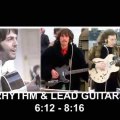


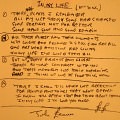
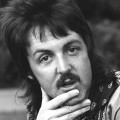
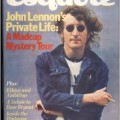

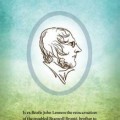
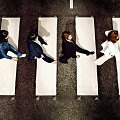
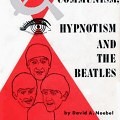
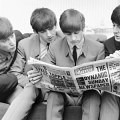

Love your photo caption with the Love Me Do bio–perfect choice. I’ve only read bits and pieces of it via internet excerpts and the like, but because it’s seems to be almost a script of the The Beatles’ conversations and activities during their tour, I tend to think it would easily meet all the CARS criteria.
An interesting application of the CARS is in relation to those bios written by relatives. Some folks dismiss these bios out of hand simply BECAUSE they’re written by relatives, but that’s obviously throwing the baby away with the bath water. Bios authored by relatives should be capable of meeting the checklist criteria as long as the authors write about what they know and steer clear of what they don’t. Julia Baird’s book is a good example of the former while Pauline Sutcliffe is an example of the latter.
Overall, I agree with your appraisal vis a vis Lewisohn, Norman, and Goldman, with the exception of the Lewisohn/Blackpool interpretation. Not to beat a very dead horse, but I think Lewisohn’s credibility falls flat in this regard. According to CARS, conclusions should rest upon sufficient and compelling evidence with enough details to support it. The evidence upon which Lewisohn based his conclusions (i.e., Billy Hall’s version of events) could call into question Fred Lennon’s account, but was not sufficiently rigorous to dismiss it out of hand.
I’d put Coleman’s Lennon: The Definitive Life somewhere between Coleman and Norman on the “untrustworthy” scale. There’s no bibliography, no citations, no list of interviews. The author makes sweeping generalizations,: “John and Paul never had much in common,” which are contradicted by mounds of evidence. It’s a biography that excuses and/or absolves any and all of John and Yoko’s less admirable behavior: Coleman argues in the forward that, yes, John could be physically violent, *but* the people he hit became famous! (So evidently its okay).
Coleman also betrays his biases in his interpretations of evidence. His interviews with George Martin for this book gave us what I still think is one of the best quotes regarding the Lennon/McCartney dynamic: when Coleman asked Martin to declare which one was more important overall to the band, Martin argued that answering that question was impossible: “It’s like asking which ingredient is more essential in a vinaigrette; the oil or the vinegar.” Coleman somehow translated that as “John was a genius, Paul was only a brilliant talent.”
His later editions of the book are markedly less anti-Paul (and, interestingly enough, Coleman repeatedly calls Paul a genius in his mid-90’s bio of Paul) but this book is riddled with major methodological and credibility issues.
Ha–kind of like that old adage that if you prefer to use a hammer everything you see is a nail. I wonder why the editor doesn’t point out the obvious discrepancies between evidence and conclusion.
Oops. I said Coleman and Goldman: I mean Norman and Goldman.
The books on my CARS lists that I generally trust:
—
1. “The Beatles Anthology.” It’s their story the way they wanted it told and it’s filled with opinions from the source: The Beatles themselves. Do they spin? Of course. But so does ever other Beatles writer.
—
2. Mark Lewisohn. His careful documentation of who did what on which song (“The Beatles Complete Recording Sessions”) is an invaluable resource for all Beatles writers. Lewisohn’s work made Ian MacDonald’s excellent Revolution in the Head a better book (see no. 3) in its updated edition. I like volume 1 of “Tune In,” but I was disappointed when Lewisohn turned out to be a bit of a Lennon fanboy, offering a full portrait of Lennon (and going out of his way to explain John’s bad behavior) but only a very thin portrait of Paul and George. Lewisohn, for example, goes on and on about the basis for John’s charisma and character but doesn’t reveal much about the basis for Paul’s charisma and character. I liked the book’s info about Ringo but, frankly, I didn’t need to know that much about Ringo. I would have preferred more about Paul and George. But maybe Volumes 2 and 3 will rectify that.
—
3. Ian MacDonald. “Revolution in the Head,” the updated edition. I don’t always agree with his views on particular songs but it’s a grand read. You can open any page and find something provocative about the band’s music.
—
4. Jonathan Gould. “Can’t Buy Me Love.” The best book on the band’s history, IMO. (Toss Shout in the garbage can.)
None of the individual bios on any of the Beatles are particularly good or trustworthy.